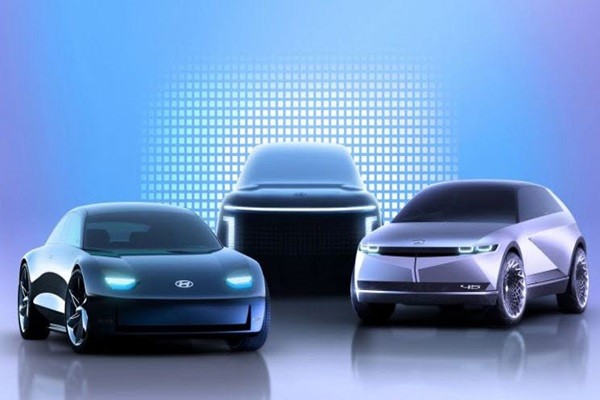Hyundai Mobis plans to start operating its electric vehicle (EV) battery module and pack plant in Ulsan in March next year. When the plant goes into operation, Hyundai Mobis’ annual EV battery production capacity will double to 250,000 units per year. It is reported that Hyundai Mobis plans to raise production capacity of the Ulsan plant up to 2.5 million units per year eventually. As multinational automotive manufacturers are looking to internalize EV batteries one after another, it is expected that Hyundai Motor Group will also make swift moves.
According to the industry on November 15, Hyundai Mobis plans to start operating the Ulsan plant in March next year. The plant is the company’s first EV battery plant and it was constructed in order to deal with rapidly increasing EV battery demands from its parent company Hyundai Motor Company.
The current annual production capacity of the plant is about 150,000 units (60 to 90 kWh per EV). Three new battery module/pack lines will be constructed, and each line is expected to produce about 50,000 battery modules/packs annually.
When the production capacity of the Ulsan plant is combined with that of HL Green Power’s Chungju plant (about 100,000 units per year), Hyundai Mobis’ annual EV battery module/pack production capacity will increase to about 250,000 units per year. HL Green Power is a joint venture established by LG Chemical and Hyundai Mobis. Battery modules are made from LG Chem’s battery cells and these modules become battery packs. These battery packs are then equipped with various operating systems such as BMS (Battery Management System) at Hyundai Mobis’ Chungju plant and are shipped to Hyundia Motor Company.
Hyundai Mobis’ Ulsan plant will respond to demands for Hyundai Motor Company’s new EVs that are based on its platform E-GMP and are expected to be released next year. Hyundai Motor Company plans to launch its first E-GMP-based midsize CUV (Crossover Utility Vehicle) “IONIQ 5” in the first half next year. IONIQ 5 is the first model of Hyundai Motor Company’s EV brand IONIQ. The company is reinforcing battery supply in order to deal with demands for its EVs.

SK Innovation plans to supply its NCM (Nickel/Cobalt/Manganese) batteries for IONIQ 5. Hyundai Motor Company is currently carrying out additional bids between LG Chem, Samsung SDI, and SK Innovation in order to select potential battery suppliers for IONIQ 6 and IONIQ 7.
Hyundai Mobis’ Ulsan plant’s production capacity is expected to increase continuously. The company plans to install additional production lines in addition to the three lines.
As production of battery modules and packs by Hyundai Mobis is set, it will be interesting to see whether Hyundai Motor Group will be able to push forward the timing of internalizing even battery cells. Multinational automotive manufacturers are accelerating their respective processes of internalizing battery cells in order to lower prices of their EVs.
Hyundai Motor Company currently receives battery cells along with operating systems such as BMS. However, the company is also manufacturing its own BMS.
The industry believes that Hyundai Motor Company will gradually become less dependent on outside companies for important EV parts so that it can be ready for an EV era. Starting with Hyundai Mobis’ Ulsan plant that is able to produce key EV parts, the company will look to speed up a process of internalizing battery cells.
One industry official said that Hyundai Motor Company is looking to grab an upper hand of the global electric vehicle market by producing its own battery modules and packs through Hyundai Mobis and manufacturing BMS.
Staff Reporter Kim, Jiwoong | jw0316@etnews.com
